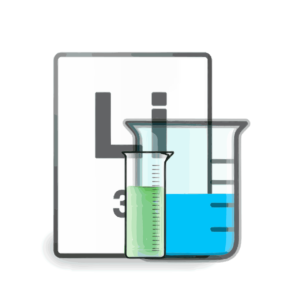Table of Contents
Surface Chemistry
Introduction
Surface chemistry is referred to as the study of matter that occurs in the upper realm of matter. This applies to industry and everyday life. In other words, surface chemistry deals with all types of surface phenomena.
What is Surface Chemistry?
It is a study of chemical reactions that occur in two visible environments such as solids, solid-gas, solid-vacuum, liquid-gas, etc. Another use of top chemistry is known as earth engineering. There are various things that happen on the surface of things and some of them are:
- Adsorption
- Heterogeneous Catalysis
- Rust
- Crystallization
Surface Chemistry Applications
In a broader sense, surface chemistry deals with the interaction of more than one system with those of another system. Some events apply to this system such as:
- Catalysis
- Colloid formation
- Electrode reaction
- Chromatography
Surface Chemistry plays a major role in various chemical processes such as:
- Enzymatic reactions to biological connections found on cell walls and membranes.
- In the electronics industry, they are used in the face and communication of microchips found on computers.
- In automobile charcoal, heterogeneous catalysts are found in the catalytic converter for outflow.

The Role of Adsorption in Surface Chemistry
The accumulation of species at higher altitudes due to intermolecular forces is known as adsorption. For example, gases such as H2, O2, N2 adsorbs instead of activated coal.
Enthalpy Adsorption: The amount of heat released when a single gas molecule is advertised in an adsorbent unit is known as an enthalpy of adsorption.
Types of Adsorption
Due to the interaction potential of the adsorbate and the adsorbent, adsorption in the above chemistry is divided into two types.
Physical Adsorption or Physisorption
There is a weak van der Waals force between the adsorbate and the adsorbent.
Features:
- Nature of power: the weak forces of van der Waals
- Specificity: Not natural in nature
- Reversibility: The process is reversed
- Layer: It is a multi-layer process
- Enthalpy of adsorption: Low adsorption enthalpy [20 – 40 KJ / mole]
- The energy of activation: Very low
- Desorption: Very simple
- Affecting factors: Extra surface area of adsorbent adsorbate, pressure, temperature.
Chemical Adsorption or Chemisorption
It is due to strong chemical forces between adsorbate and adsorbent.
Characteristics:
- Nature of forces: Strong chemical forces
- Specificity: Highly specific nature
- Reversibility: It is irreversible
- Layer: It is a single-layered process
- Enthalpy of adsorption: High enthalpy of adsorption [40 – 400 KJ/mole]
- The energy of activation: Very high
- Desorption: Very difficult
- Factors affecting: Surface area of adsorbent, nature of adsorbate Temperature.
FAQ’s
Explain Surface Chemistry?
The chemical reaction or chemical changes that occur in two aeroplanes are called surface chemistry. The combination of the two phases in the above chemistry can be solid-gas, solid-liquid, liquid - gas etc. depending entirely on the compounds or elements involved in the reaction or modification. It has various applications in analysis work, the medical field, the paint industry etc. It combines various reactions such as absorption, catalysis, colloids, emulsions and much more.
What is Adsorption?
An event in which atoms, ions or molecules of liquids, gases, or solids (soluble) accumulate on top of an object in a different phase by the adhesion force called adsorption. An adsorbates an object, which concentrates or accumulates on top of another object. An adsorbent is an additional element where adsorption occurs. Adsorption is one of the main components of advanced chemistry and should be studied thoroughly before testing.









